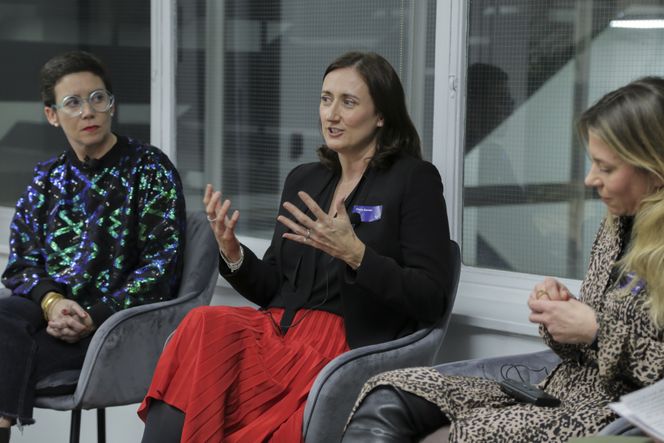
Top takeaways from our Women in Carbon Event
Here are some key takeaways from the event
Carbon Markets once again at the heart of discussions at COP27, with a focus on implementation and enhanced transparency.
Companies will increasingly be held accountable for their short-term efforts to reduce emissions, moving the focus away from setting long-term pledges to demonstrable progress.
Key trends for carbon markets in 2023 include further development and diversification of carbon credit supply, supported by increased availability of climate-focused capital.
This was the first carbon industry event led and attended by women, a cornerstone of the Women in Carbon industry network initiative.
The event opened with a panel discussion on the current state and future of the carbon markets featuring Rachel Delacour, CEO of Sweep, Claire Dorrian, Head of Sustainable Finance at LSEG and Margaret Mistry, VP of Carbon Markets at Equinor. The session was moderated by Business Insider’s climate tech journalist Tasmin Lockwood.
The discussion began with a reflection from each of the panellists on their careers and how roles in the industry have changed over time. As climate has become an essential part of companies' strategy, supported by boards and investors, climate expertise has become a requisite for executive positions. This has given sustainability roles, traditionally female-led, the opportunity to grow into executive and more strategic positions, supporting gender diversity at executive level.

The flow of conversation moved on to address the current state of the carbon markets, starting with key takeaways from COP27 in Sharm El-Sheikh, which the speakers all attended. Carbon markets were once again a key topic of discussion at this year’s conference, with a focus on implementation and enhanced transparency.They touched on the importance and urgency in scaling the market at the pace required to make lasting climate impact, as well as the growing role of blended public and private finance in helping to enact change.
There was a broad agreement across the panel that companies will increasingly be held accountable for their short-term efforts to reduce their emissions, rather than their long-term objectives - moving focus away from Net Zero pledges to demonstrating progress. Reporting transparency and auditability will therefore be of growing importance in order to assess the credibility of companies’ climate claims. To this end, increasing information transparency and comparability will be essential to helping shape and ensure the efficacy of future regulation.

The panel closed by looking ahead to next year, with each speaker sharing their views on key trends for the carbon market in 2023. Following discussions at COP27, it is clear that climate-focused capital will play a pivotal role next year. The availability of institutional capital directed at developing new high-quality carbon projects with attractive returns should create more supply and credits in the market. Another panellist noted that 2023 should also see a surge in new technologies that support reporting transparency and auditability.
It was an insightful conversation and a great opportunity to network, bringing together so many women from across the carbon industry - many of whom were meeting for the first time. We spent the rest of the evening reflecting on our shared experiences of working in this nascent market, as well as our hopes for it moving forward.
I closed the event by introducing the Women in Carbon industry network, an initiative that aims to connect and empower women working in the carbon sector and serve as a platform to continue the discussions that we began at this event. We are excited to share more details on the network in January 2023. In the meantime, register your interest here for the network and to be included in future updates.